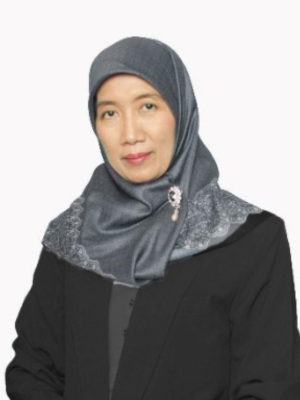"Yes, I'm Nude”: Deconstructing Body Image Stereotypes in Nxde by (G)I-DLE
Downloads
The evolution of the Korean music industry, or K-Pop, has now become a global phenomenon. K-Pop has
transcended boundaries, not only as a genre of music but also as a medium capable of conveying messages and
critiques on societal issues. (G)I-DLE’s 2022 song “Nxde” stands out in this regard, addressing body image and
challenging stereotypes related to women’s representation. This study investigates how “Nxde” deconstructs body
image stereotypes and critiques the objectification of women within K-Pop and broader media cultures. Using
Charles Morris's semiotic analysis, this research examines syntactic, semantic, and pragmatic aspects of the song's
lyrics and imagery, positioning "nude" as a symbol of self-authenticity that opposes superficial standards often
imposed on female idols. Findings indicate that “Nxde” aims to empower women by redefining nudity as an
expression of authenticity. As seen in society, the meaning of nudity is often only considered as sexualized and
inappropriate norms. While this also raises questions about the potential contradictions between feminist messages
that may still conform to patriarchal standards. In conclusion, “Nxde” exemplifies K-Pop's dual role as both a
platform for progressive social commentary and a potential reinforcer of traditional beauty norms. The study
suggests that songs like “Nxde” can stimulate discourse on body image and foster more nuanced representations of
women. However, the findings also underscore the complexities of using provocative imagery to convey messages
of empowerment, highlighting the need for further research into media’s influence on gender perceptions.
Apuke, O. D. (2019). Portrayal and Objectification of Women in Music Videos: A Review of Existing Studies. TSU Journal of Communication and Media Studies, 2(1).
Bartky, S. L. (2015). Femininity and domination: Studies in the phenomenology of oppression. In Femininity and Domination: Studies in the Phenomenology of Oppression. https://doi.org/10.4324/9780203825259
Bartlett, J. (2022, June 28). Domestic and Global Political Impacts of K-Pop: BoA, BTS, and Beyond. Thediplomat.com. https://thediplomat.com/2022/06/domestic-and-global-political-impacts-of-k-pop-boa-bts-and-beyond/
Benjamin, J. (2022, November 16). (G)I-DLE Open Up About Pressures Ahead of “Nxde” Release & The Teamwork Guiding Them Today. Billboard. https://www.billboard.com/music/pop/g-i-dle-interview-nxde-i-love-album-tour-teamwork-1235158996/
Bordo, S. (2023). UNBEARABLE WEIGHT: FEMINISM, WESTERN CULTURE, AND THE BODY, Tenth Anniversary Edition. In Unbearable Weight: Feminism, Western Culture, and the Body, Tenth Anniversary Edition.
Buhphang, L. N. (2024). The influence of K-pop beauty standards on body image among adolescents in Shillong. International Journal of Indian Psychȯlogy, 12(3).
Butler, J. (2011). Gender trouble: Feminism and the subversion of identity. In Gender Trouble: Feminism and the Subversion of Identity. https://doi.org/10.4324/9780203824979
Crane, D. (2000). Fashion and its social agendas: Class, gender, and identity in clothing. University of Chicago Press.
Davis, S. E. (2018). Objectification, Sexualization, and Misrepresentation: Social Media and the College Experience. Social Media and Society, 4(3). https://doi.org/10.1177/2056305118786727
Deci, E. L., & Ryan, R. M. (2000). The “what” and “why” of goal pursuits: Human needs and the self-determination of behavior. Psychological Inquiry, 11(4). https://doi.org/10.1207/S15327965PLI1104_01
Delgado Amaro, H., Alvarez, M. J., & Ferreira, J. A. (2022). Sexual gender roles and stereotypes and the sexual double standard in sexual satisfaction among Portuguese college students: an exploratory study. Psychology and Sexuality, 13(5). https://doi.org/10.1080/19419899.2022.2039271
Emmerink, P. M. J., van den Eijnden, R. J. J. M., Vanwesenbeeck, I., & ter Bogt, T. F. M. (2016). The Relationship Between Endorsement of the Sexual Double Standard and Sexual Cognitions and Emotions. Sex Roles, 75(7–8). https://doi.org/10.1007/s11199-016-0616-z
Faheim, F.H.M.F., Mohammed, N.S., Aziz, N.S., & Ibrahim, M.S. & Afandi, W.N.H.W (2020). The relationship between the level of beauty standard which develop people’s perception. Jurnal Evolusi. 1(1)
Genius. (2022). i-dle (아이들) – Nxde. Genius. https://genius.com/I-dle-nxde-lyrics
Gill, R. (2008). Empowerment/sexism: Figuring female sexual agency in contemporary advertising. Feminism and Psychology, 18(1). https://doi.org/10.1177/0959353507084950
Grabe, S., Ward, L. M., & Hyde, J. S. (2008). The Role of the Media in Body Image Concerns Among Women: A Meta-Analysis of Experimental and Correlational Studies. Psychological Bulletin, 134(3). https://doi.org/10.1037/0033-2909.134.3.460
Grinde, B. (2021). Sexual Behavior in Modern Societies: An Interdisciplinary Analysis. Sexuality and Culture, 25(6). https://doi.org/10.1007/s12119-021-09865-2
Guizzo, F., Cadinu, M., Galdi, S., Maass, A., & Latrofa, M. (2017). Objecting to Objectification: Women’s Collective Action against Sexual Objectification on Television. Sex Roles, 77(5–6). https://doi.org/10.1007/s11199-016-0725-8
Hooks, b. (1989). Talking Back: Thinking Feminist, Thinking Black. South End Press.
i-dle (아이들) (@i_dle_official) • Instagram photos and videos. (2025). Instagram.com. https://www.instagram.com/i_dle_official/
Isabel, H., Rooselinda, A. M. I., Harrianto, J., & Tolosa, M. H. (2022). The Gender Equality Movement in South Korea: The Semiotic Analysis of Blackpink Ddu-du Ddu-du. Calathu: Jurnal Ilmu Komunikasi, 4(1). https://doi.org/10.37715/calathu.v4i1.2457
Jie, Z. (2023). Language, Cultural Hybridity, and Resistance in K-Pop: A Linguistic Analysis of Korean Pop Music Lyrics and Performances. Management, Business and Social Science (IJEMBIS) Peer-Reviewed-International Journal, 3(3).
Jonas, L. (2022). Journal of International Women ’ s Studies Crafted for the Male Gaze : Gender Discrimination in the K-Pop Industry. 23(1).
Kim, J. (2021). The Resurgence and Popularization of Feminism in South Korea: Key Issues and Challenges for Contemporary Feminist Activism. Korea Journal, 61(4). https://doi.org/10.25024/kj.2021.61.4.75
Koreaboo. (2022, November 21). “Nxde” has become (G)I-DLE’s most award-winning song to date. Koreaboo. https://www.koreaboo.com/news/gi-dle-nxde-become-award-winning-song-date/
Kriyantono, R. (2006). Teknik praktis riset komunikasi kuantitatif dan kualitatif (Edisi Kedua). Jakarta: Prenadamedia Group.
Kuo, L., Perez-Garcia, S., Burke, L., Yamasaki, V., & Le, T. (2022). Performance, Fantasy, or Narrative: LGBTQ+ Asian American Identity Through Kpop Media and Fandom. Journal of Homosexuality, 69(1). https://doi.org/10.1080/00918369.2020.1815428
Lal, R., Kumar, D., & Singh, A. G. (2022). Body image and beauty standards: Role of media in shaping perceptions. The Journal of Oriental Research Madras, 92(2). https://www.researchgate.net/publication/373738200_Body_Image_and_Beauty_Standards_Role_of_Media_in_Shaping_Perceptions
Lee, Y. (2017, March 14). How sparks at S. Korean women’s school led to anti-Park fire. The Seattle Times. https://www.seattletimes.com/nation-world/s-korea-womens-school-movement-seen-as-root-of-park-ouster/
Li, X. (2024). “Yea I’m a f* Tomboy”: “girl crush,” postfeminism, and the reimagining of K-pop femininity. Social Semiotics, 34(4), 576–592. https://doi.org/10.1080/10350330.2022.2150542
Lin, X., & Rudolf, R. (2017). Does K-pop reinforce gender inequalities? Empirical evidence from a new data set. Asian Women, 33(4), 27–54. https://doi.org/10.14431/aw.2017.12.33.4.27
Melon. (2016). 멜론. https://www.melon.com/kpop100/detail.htm?detailSong=1683050
Morris, C. W., & Ders. (1971). Foundations of the Theory of Signs. In Writings on the General Theory of Signs.
Niu, M. (2020). Semiotics and Semiosics: the Terminological Connotations and Conceptual Relations. International Journal of New Developments in Education, 2-3.
Pelc, J. (2000). Semiosis and semiosics vs. semiotics. Semiotica, 128(3–4). https://doi.org/10.1515/semi.2000.128.3-4.425
Ritchie, J., Lewis, J., McNaughton Nicholls, C., & Ormston, R. (2014). Qualitative research practice : a guide for social science students and researchers. SAGE.
Ridder, H. G., Miles, M. B., Michael Huberman, A., & Saldaña, J. (2014). Qualitative data analysis. A methods sourcebook. Zeitschrift Fur Personalforschung, 28(4).
Talitha, G. F., & Liyanti, L. (2019). MITOS LORELEI DARI WAKTU KE WAKTU: KAJIAN FEMINISME EKSISTENSIALISME PADA TIGA LIRIK LORELEI TAHUN 1823, 1981, DAN 2013. Haluan Sastra Budaya, 3(1). https://doi.org/10.20961/hsb.v3i1.25730
Tiggemann, M., & Slater, A. (2013). NetGirls: The internet, facebook, and body image concern in adolescent girls. International Journal of Eating Disorders, 46(6). https://doi.org/10.1002/eat.22141
Venters, L., & Rothenberg, A. (2023). Trammelled stars: the non-autonomy of female K-pop idols. Celebrity Studies, 14(4). https://doi.org/10.1080/19392397.2022.2083521
Vera, H., & Foucault, M. (1979). The History of Sexuality, Volume 1: An Introduction. Contemporary Sociology, 8(4). https://doi.org/10.2307/2065177
Yoon, S. (2022, October 25). (G)I-DLE become the only artist of 2022 to score two perfect all-kills with latest title track “Nxde” | Allkpop. Allkpop. https://www.allkpop.com/article/2022/10/gi-dle-become-the-only-artist-of-2022-to-score-two-perfect-all-kills-with-latest-title-track-nxde
Yang, H. (2022, November 9). (G)I-DLE has some asking can a song be sexy and send a message? Koreajoongangdaily.joins.com. https://koreajoongangdaily.joins.com/2022/11/09/entertainment/kpop/idle-gidle-GIDLE/20221109133739189.html
Yong Jun, C. (2023, February 2). Spotify releases listening statistics for K-pop category. Korea JoongAng Daily. https://koreajoongangdaily.joins.com/2023/02/02/entertainment/kpop/Korea-Kpop-Spotify/20230202184735648.html
Copyright (c) 2025 Biokultur

This work is licensed under a Creative Commons Attribution-NonCommercial-ShareAlike 4.0 International License.
1. Copyright of this journal is possession of Editorial Board and Journal Manager, by the knowledge of the author, while the moral right of the publication belongs to the author.
2. The formal legal aspect of journal publication accessibility refers to a Creative Commons Attribution-NonCommercial-ShareAlike 4.0 International License (CC BY-NC-SA).
3. All publications (printed/electronic) is open access for educational purposes, research, and library. Other than the aims mentioned above, the editorial board is not responsible for copyright violation.









